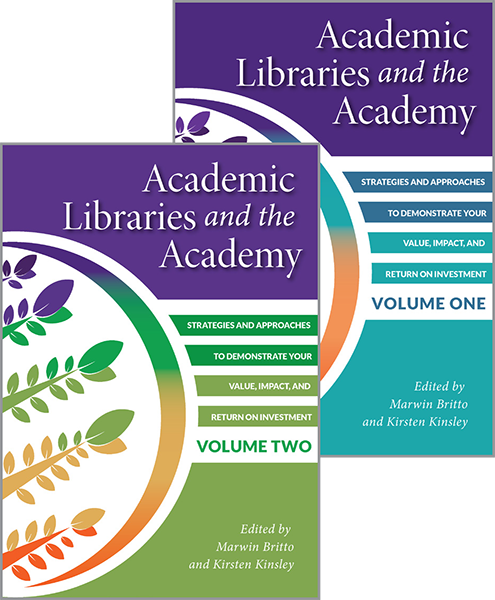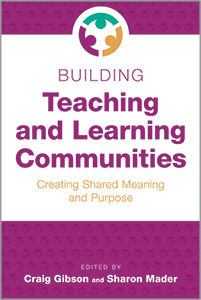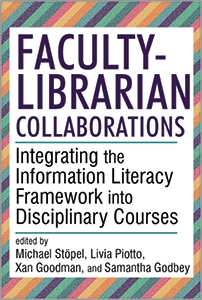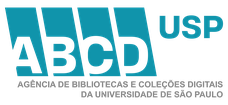Kit de Ferramentas da Biblioteca: apoio ao docente

== Apoio ao Docente ==
Este kit de ferramentas é uma coleção selecionada de recursos elaborados pela equipe da ACRL para equipar administradores de bibliotecas acadêmicas e profissionais de bibliotecas com os recursos de que precisam para defender o valor, as funções e as contribuições das bibliotecas universitárias para as comunidades de seus campi.
O kit de ferramentas foi criado em resposta às pressões atuais e concretas que muitas bibliotecas acadêmicas estão enfrentando, incluindo desafios relacionados a orçamentos, desafios da força de trabalho, funções profissionais e muito mais. Esta é uma tradução livre e compilação de informações de Elisabeth Dudziak, da Agência de Bibliotecas e Coleções Digitais (ABCD-USP) da Universidade de São Paulo.
Os recursos abaixo fornecem informações que o ajudarão a demonstrar o papel da biblioteca no apoio ao corpo docente de ensino e pesquisa, a fim de manter e aumentar os orçamentos para serviços, recursos, pessoal e espaços da biblioteca que atendem diretamente ao corpo docente. O suporte para o corpo docente pode incluir, mas não está limitado a:
- Colaboração e apoio à pesquisa,
- Apoio à publicação,
- Identificar ou fornecer métricas de impacto de posse e promoção,
- Co-design de currículo ou tarefa,
- Instrução de alfabetização em biblioteca e informação
- Integração de recursos educacionais abertos (OERs) em cursos ou criação,
- Apoio à pesquisa (e dados de pesquisa), e
- Conceder apoio.
ACRL Reports
-
 Developed for ACRL by OCLC Research, this valuable resource investigates how libraries can increase student learning and success and effectively communicate their value to higher education stakeholders. It demonstrates how libraries are now measuring library contributions to student learning and success, and recommends where more research is needed in areas critical to the higher education sector such as accreditation, student retention, and academic achievement.
Developed for ACRL by OCLC Research, this valuable resource investigates how libraries can increase student learning and success and effectively communicate their value to higher education stakeholders. It demonstrates how libraries are now measuring library contributions to student learning and success, and recommends where more research is needed in areas critical to the higher education sector such as accreditation, student retention, and academic achievement.
-

The Value of Academic Libraries: A Comprehensive Research Review and Report (Oakleaf, 2010)
We encourage you to use this document to start a conversation with your chief academic officer, provost, president, or your library’s advisory committee. At our request, Dr. Oakleaf wrote the executive summary with an external audience in mind. It is, we hope, a document that can stand alone, so that you can share it with administrators on campus in order to promote dialogue on the value of the academic library in higher education.
Articles
-
Keeping Up With… Research Data Management (Miller, Miller, & Phillips, 2018)
Research Data Management (RDM) is a broad concept that includes processes undertaken to create organized, documented, accessible, and reusable quality research data. The role of the librarian is to support researchers through the research data lifecycle.
-
Value Added: A Case Study of Research Impact Services explores the launch of a research impact service program at Indiana University Bloomington, specifically incorporating content for humanities and social science researchers for whom metrics is not always a natural fit.
Books
-

Academic Libraries and Collaborative Research Services (Forbes (ed.), 2022)
Academic Libraries and Collaborative Research Services offers case studies and content across library unit areas for faculty, such as open access, data services, and the development of new liaison roles in forming new levels of research partnerships. It also provides insight for university and research administrators in working with the library to enhance the research ecosystem on campus.
-
 Academic Libraries and the Academy is a thorough collection of best practices, lessons learned, approaches, and strategies of how librarians, library professionals, and others in academic libraries around the world are successfully providing evidence of their contributions to student academic success and effectively demonstrating their library’s value and worth to institutional administrators and stakeholders. Forty-two case studies over two volumes—Volume One and Volume Two—are divided into four sections, from beginning assessment work through assessment activities that are more difficult to measure and generally more time- and resource-intensive. Each study provides practicable ideas and effective strategies for all levels of experience, assessment skills, stages of implementation, and access to resources.
Academic Libraries and the Academy is a thorough collection of best practices, lessons learned, approaches, and strategies of how librarians, library professionals, and others in academic libraries around the world are successfully providing evidence of their contributions to student academic success and effectively demonstrating their library’s value and worth to institutional administrators and stakeholders. Forty-two case studies over two volumes—Volume One and Volume Two—are divided into four sections, from beginning assessment work through assessment activities that are more difficult to measure and generally more time- and resource-intensive. Each study provides practicable ideas and effective strategies for all levels of experience, assessment skills, stages of implementation, and access to resources.
-
 Building Teaching and Learning Communities is an entry into some of the most interesting conversations in higher education and offers ways for librarians to socialize in learning theory and begin “thinking together” with faculty. It proposes questions, challenges assumptions, provides examples to be used and adapted, and can help you better prepare as teachers and pursue the essential role of conversation and collaboration with faculty and students.
Building Teaching and Learning Communities is an entry into some of the most interesting conversations in higher education and offers ways for librarians to socialize in learning theory and begin “thinking together” with faculty. It proposes questions, challenges assumptions, provides examples to be used and adapted, and can help you better prepare as teachers and pursue the essential role of conversation and collaboration with faculty and students.
-

Classroom Assessment Techniques for Librarians (Bowles-Terry & Kvenild, 2015)
Classroom Assessment Techniques for Librarians provides the tools librarians need to quickly and meaningfully assess student knowledge in the classroom. The authors, Melissa Bowles-Terry and Cassandra Kvenild, share 24 tried and true assessment tools, along with library-specific examples, to help librarians assess students ability to recall, analyze, and apply new knowledge. The assessment tools in this book actively engage students by asking them to think, write, and reflect. Librarians can use results of these assessments as a starting point to define and measure information literacy learning outcomes as well as to improve their teaching skills and instructional design. This collection of assessment techniques can be adapted to multiple learning environments, including traditional one-shot library instruction, online instruction, and for-credit courses. This book is essential for academic libraries, and will prove useful to school libraries with strong information literacy programs, as well as library and information school collections.
-
 Faculty-Librarian Collaborations collects chapters, case studies, and lesson plans detailing why these collaborations are important, how to develop and execute them, specific lesson plans, and ideas for assessing their effectiveness.
Faculty-Librarian Collaborations collects chapters, case studies, and lesson plans detailing why these collaborations are important, how to develop and execute them, specific lesson plans, and ideas for assessing their effectiveness.
-
Meaningful Metrics is a comprehensive look at research metrics and how librarians could integrate metrics content into faculty research services. It also includes how to leverage discussions about the significance and use cases of metrics across campus with various stakeholders, including university administration, deans, and associate deans of research.
Standards & Statements
-
ACRL Framework for Impactful Scholarship and Metrics
The ACRL Impactful Scholarship and Metrics Task Force was formed primarily to create a framework for the measurement and evaluation of academic librarian scholarship. The framework is designed to address gaps between current scholarly evaluation practices and impactful scholarly activities within academic librarianship, including ways to measure and evaluate the impact of a wide range of research outputs.
-

ACRL Standards for Libraries in Higher Education
Standards for Libraries in Higher Education are designed to guide academic libraries in advancing and sustaining their role as partners in educating students, achieving their institutions’ missions, and positioning libraries as leaders in assessment and continuous improvement on their campuses.
Tools & Toolkits
-
ACRL/CJCLS OER Librarian Toolkit
The toolkit, created by the ACRL Community and Junior College Libraries Section (CJCLS), was developed to connect librarians with active OER Communities and resources that reflect the value of the work of academic librarians.
Workshops & Roadshows
-

ACRL Open Educational Resources and Affordability Roadshow
ACRL’s Open Educational Resources (OER) and Affordability RoadShow will help you understand the basics of OER and how libraries can be involved in affordability initiatives at your institution. This day-long, introductory workshop is intended for academic librarians and library staff interested in learning about OER and/or developing OER initiatives. The workshop begins with a morning of foundational knowledge about OER: What are OER? How do they impact faculty and students? Throughout the day, we also discuss examples of and opportunities for library involvement in affordability initiatives, analyze stakeholders and institutional context, and determine appropriate strategies and goals for real-world application.
-

ACRL Putting the Standards for Libraries in Higher Education into Action
Libraries in higher education are increasingly required to demonstrate their value and document their contributions to overall institutional effectiveness. The Standards for Libraries in Higher Education is a framework for library planning and assessment that can be used for a variety of circumstances including annual planning, program review, and accreditation self-study. Through presentation, discussion, and group activities, learn how to use the Standards to communicate your library’s impact.
-

ACRL Standards for Libraries in Higher Education RoadShow – Resource Guide
ACRL Standards for Libraries in Higher Education RoadShow – Resource Guide: Libraries in higher education are increasingly required to demonstrate their value and document their contributions to overall institutional effectiveness. The Standards for Libraries in Higher Education is a framework for library planning and assessment that can be used for a variety of circumstances including annual planning, program review, and accreditation self-study. Through presentation, discussion, and group activities, learn how to use the Standards to communicate your library’s impact.
Other Resources
-
Bibliometrics and Research Assessment Symposium 2020 (NIH Library)
This comprehensive virtual symposium includes various sessions ranging from training on software and database research impact tools to a discussion of potential roles for librarians in research impact and related topics on gender disparities and funder perspectives within the research metrics and assessment landscape.

Higher Education Leadership Initiative for Open Scholarship (HELIOS)
- The Higher Education Leadership Initiative for Open Scholarship (HELIOS) is a cohort of colleges and universities committed to collective action to advance open scholarship within and across their campuses. Leaders from US colleges and universities have joined this community of practice, working together to promote a more transparent, inclusive, and trustworthy research ecosystem.
Association of College and Research Libraries (ACRL). Academic Library Advocacy Toolkit. 02 Fev. 2022. Disponível em: https://acrl.libguides.com/advocacytoolkit/home Acesso em: 13 fev. 2023.





